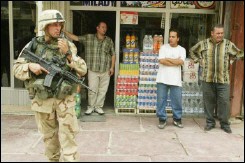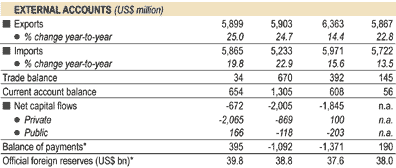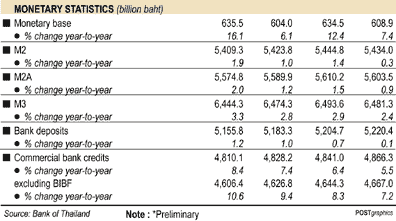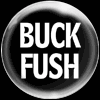 webradio
webradio (deutsch)
(deutsch) michael moore
michael moore  Mondlandungs Lüge
Mondlandungs Lüge (deutsch)
(deutsch)

 Tages-Anzeiger online
Tages-Anzeiger online

|
marcosolo, 6. Dezember 2003 um 23:43:16 MEZ
Thai police to probe killings in anti-drug war A special team has been given a week to go through files on more than 2,500 people killed this year and report back By Nirmal Ghosh BANGKOK - The Royal Thai Police said yesterday that it had launched an investigation into the more than 2,500 killings that took place in the early stages of the government's controversial 10-month 'war on drugs'. -- AFP The probe was triggered by King Bhumibol Adulyadej's annual birthday speech broadcast live over radio, it added. The monarch had wanted an explanation for the deaths that had taken place. Police Major General Pongsapat Pongcharoen said that a special police team had been set up to investigate all the killings that took place in the country from Feb 1 to April 30 this year. The team has seven days to report back with the findings. All police agencies have been instructed to give it their fullest cooperation. He said officers plan to reopen the files on all of the cases and investigate. Prime Minister Thaksin Shinawatra launched his crackdown on the illicit drug trade in February after the King called for the nation's drug problems to be addressed during his birthday speech last year. It was estimated then that about 5 per cent of Thais were regular users of methamphetamines or 'yaba' - the main focus of the crackdown. As the campaign continued, the gung-ho tactics of the police against drug criminals left a bloody trail of bodies - among them those of innocent bystanders. Questions were raised at home and abroad about violation of human rights in the campaign. Police claimed that most of the dead were traffickers killed by drug dealers who were afraid that they would expose them and their modus operandi. Others were killed by police acting in self-defence, they added. Mr Thaksin has consistently rejected allegations of extra-judicial executions by the police. At a ceremony on Thursday during which he declared the war on drugs had been successful, he said he was not sorry to see 'enemies of the nation' dead or jailed. But in an address on Thursday night, on the eve of his 76th birthday, the King urged the Thai Prime Minister to publish the results of the investigations. 'If the matter is not clarified, many people will blame the Prime Minister,' he said. 'The findings should be made available to the public and to the international community.' 'It is a good thing to suppress drugs,' the King said in his 90-minute televised speech, delivered to a select audience of Cabinet members, top government officials and diplomats at the Chitralada Palace. 'Most of the dead were people who had killed one another, people who did the trafficking...' But he added: 'The government must take responsibility by clarifying the causes of the deaths.' In his speech, King Bhumibol praised the Prime Minister but at the same time advised that he exercise moderation, openness and more tolerance towards criticism. He said: 'When I was 40-50 years old, my mother told me sometimes that I was great but she always added that I must not forget myself. 'She said I must not float and Bhumibol means that I had to keep my feet on the ground.' 'She said when I did something good, it's all right to know what I did but I should not be too proud.' He also said that Mr Thaksin should 'read newspapers - and let them write'. There has been growing unease in media and intellectual circles about what is perceived as the government's intolerance of criticism. The Thaksin administration is riding on a wave of popularity and has won praise for lifting Thailand out of economic gloom. But ruling party members have periodically lashed out at academics and non-government organisations critical of government policies. ... Link marcosolo, 1. Juni 2003 um 20:38:30 MESZ Iraqis snub call to turn in arms BAGHDAD (AFP) 
A US soldier stands guard during a search for automatic weapons in a residential building in Baghdad. The coalition in Iraq expects to ban all heavy and automatic weapons and require permits for carrying other arms. Iraqis ignored a demand to turn in their weapons as the US-led administration began a two-week countdown to the imposition of new firearm controls in a bid to stem post-war lawlessness. None of the collection points in the capital visited by AFP reported any weapons had been handed in Sunday, despite three days of announcements on coalition radio. US troops at the al-Mesbah police station said they had received about 20 inquiries from Iraqis wanting to know whether they would have to license their weapons once the new rules come into force on June 15. But at the al-Ulwiya police station, soldiers admitted they had not had a single approach from Iraqis all day. Under the new rules, all heavy weapons must be turned in but Iraqis will be allowed to retain pistols, shotguns and rifles up to 7.62 mm calibre for self-defence, provided they do not take them out of their homes and businesses. That will let them keep the ubiquitous Kalashnikov or AK-47, the favoured weapon of most Iraqis. Anyone wanting to carry arms on the street will need a special permit from the occupation administration, which has laid down detailed procedures for weapons surrenders to prevent coalition troops mistaking them for armed attacks. Sergeant First Class Chris Rhett tried to put a brave face on the lack of interest from Iraqis. "We won't get a big rush of weapons till close to the end," he said. "I would hope it will pick up before then. "We are going to be putting more posters and leaflets out. I don't think we've got as many out as we need to." Coalition officials had placed high hopes on the new weapons controls. "We think it is going to be a successful policy because of the good Iraqi citizens who want to see law and order restored," a ground forces spokesman said Saturday. But Iraqis questioned by AFP expressed astonishment at the policy, saying they would be unwilling to give up their treasured weapons despite the pending ban. "Why should anyone want to just give away their weapon when they can sell it for good money?" said Arkan al-Zebaki, waving a 1950s vintage Webley and Scott pistol at Baghdad's open-air arms market which has maintained an underground existence despite repeated US raids. "In any case why would any self-respecting Iraqi want to turn in their weapon to an American, particularly at a police station?" Fellow arms dealer Abbas Fadhel agreed. "For us a weapon is a badge of honour," he said. "Even Saddam didn't dare to take away our weapons." Fadhel has only pistols and ammunition on display for fear of another US raid or a robbery in the ultra-lawless looters' market. But he said he has mortars for 75 dollars and rocket-propelled grenades for 100 dollars in his home just 10 minutes away. Another arms dealer, Faris Mohammad, said it was too early to impose the weapons crackdown. "I'm only selling weapons here because I lost my job when they abolished the defence ministry," he said. "It's the same for most of us here, and it's also true of the hoodlums who create the fear on the streets that we all feed off. "If the Americans could give people jobs, then the problem would right itself." Even Abbas Hussein, who shows off two bullet wounds in his right foot, the legacy of a robbery on Friday evening in which he lost 25 dollars, said he had no intention of looking to the Americans for security. "If I need protection, I'll go buy a gun," he said. "We can't expect foreigners to save us from other Iraqis." For Ali Mahsen, there is only one way to control the gangs who operate out of squats in bombed-out buildings across the city. "Bring back Saddam's state security people," he said. "Saddam never needed to take our guns away, he knew how to maintain law and order." ... Link marcosolo, 1. Juni 2003 um 19:36:04 MESZ Tourist arrivals in April fell to an eight-year low due to the Sars epidemic, according to the Bank of Thailand. Central bank data for April confirm impact from Sars Parista Yuthamanop 


April arrivals totalled 468,000, down 45% from the year before. Total arrivals for the first quarter was 2.83 million. Atchana Waiquamdee, senior director for the central bank's domestic economy department, said even with arrivals down, employment in the hotel industry remained relatively stable, with many businesses choosing to cut costs through temporary leaves rather than outright layoffs. She said many tourism-related companies had taken the view that the impact of Sars would be limited to the short-term. In any case, falling tourism revenues in April helped push the service account into a deficit of $9 million for the month, the first deficit in nearly four years. The Sars epidemic has hit airlines, hotels and tourist-related businesses sharply in recent months, with many companies already warning of poor results for the second quarter. National carrier Thai Airways yesterday said passenger traffic in April was down over one-third from the year before due to Sars. Total passenger traffic in April was 1.031 million, down 35.6% from the year before. Passenger load factor, representing the number of occupied seats per flight, was down to 54.8% in April compared with 76% the year before. But the central bank said the overall economy still performed relatively well in April due to a strong export performance and domestic consumption. Exports rose 22.8% from the year before to $5.86 billion in April. Gains were registered in all markets, with European shipments up 22.1% from last year, China up 78.7%, Asean 21.5%, US 11.1% and Japan 13.4%. Shipments were up 13.2% year-on-year, with prices increasing by 8.5%. April imports totalled $5.72 billion, up 13.5% from the year before. Dr Atchana said the current account surplus in April was $56 million, down from $608 million the previous month. Declines were attributed in part to seasonal factors. Farm income was also up 35% in April from the year before due to a strong sugar cane crop. Higher agricultural income helped boost overall consumption, Dr Atchana said, given that around 40% of the work force was employed in the farm sector. Manufacturing production, excluding the sugar industry, was up 12% in April from last year, a decline from the 13.3% increase posted the previous month. Domestic consumption indicators showed a decline in April from previous months, with passenger car sales down by over half in April from the previous month. Department store sales also fell to single-digit sales in April, although the central bank said it remained too early to say whether the fall off in consumption represented a new trend. Industrial capacity utilisation in April was 64.9%, down from 73.7% in March. The central bank said March figures had jumped as companies accumulated inventory ahead of the Songkran holidays. Private investment figures meanwhile have yet to show a clear recovery in the aftermath of the Iraqi war, although new applications for investment promotion through the Board of Investment were rising. The business sentiment index for April showed an eroding confidence at 46.7 points, for the first time in seven months as a result of the Iraqi war which lasted until April and the Sars outbreak. But the three-month outlook stood at 54.9, close to pre-war levels. The index of higher than 50 signalled an improving confidence, while those lower indicated an eroding confidence. ... Link |
online for 8587 Days
last updated: 15.12.12, 03:58  Youre not logged in ... Login

  |
|||||||||||||||||||||||||||||||||||||||||||||||||||||||||||

View My Guestbook
Sign My Guestbook




marcosolo's 
|
marcosolo  webradio statistics webradio statistics |
Nord- Motorrad-trips in Nord Thailand Motorrad-trips in Nord Thailand
|











